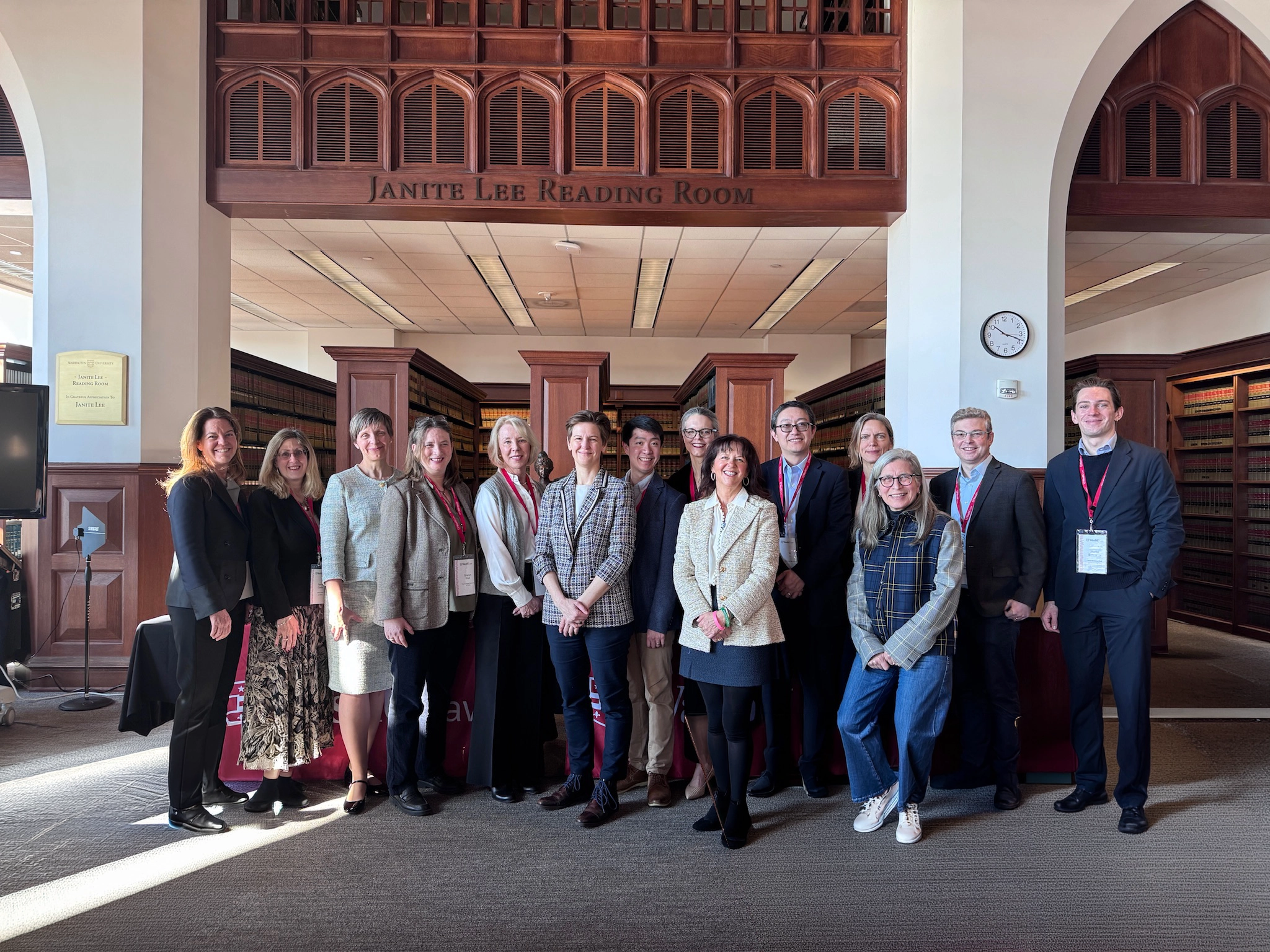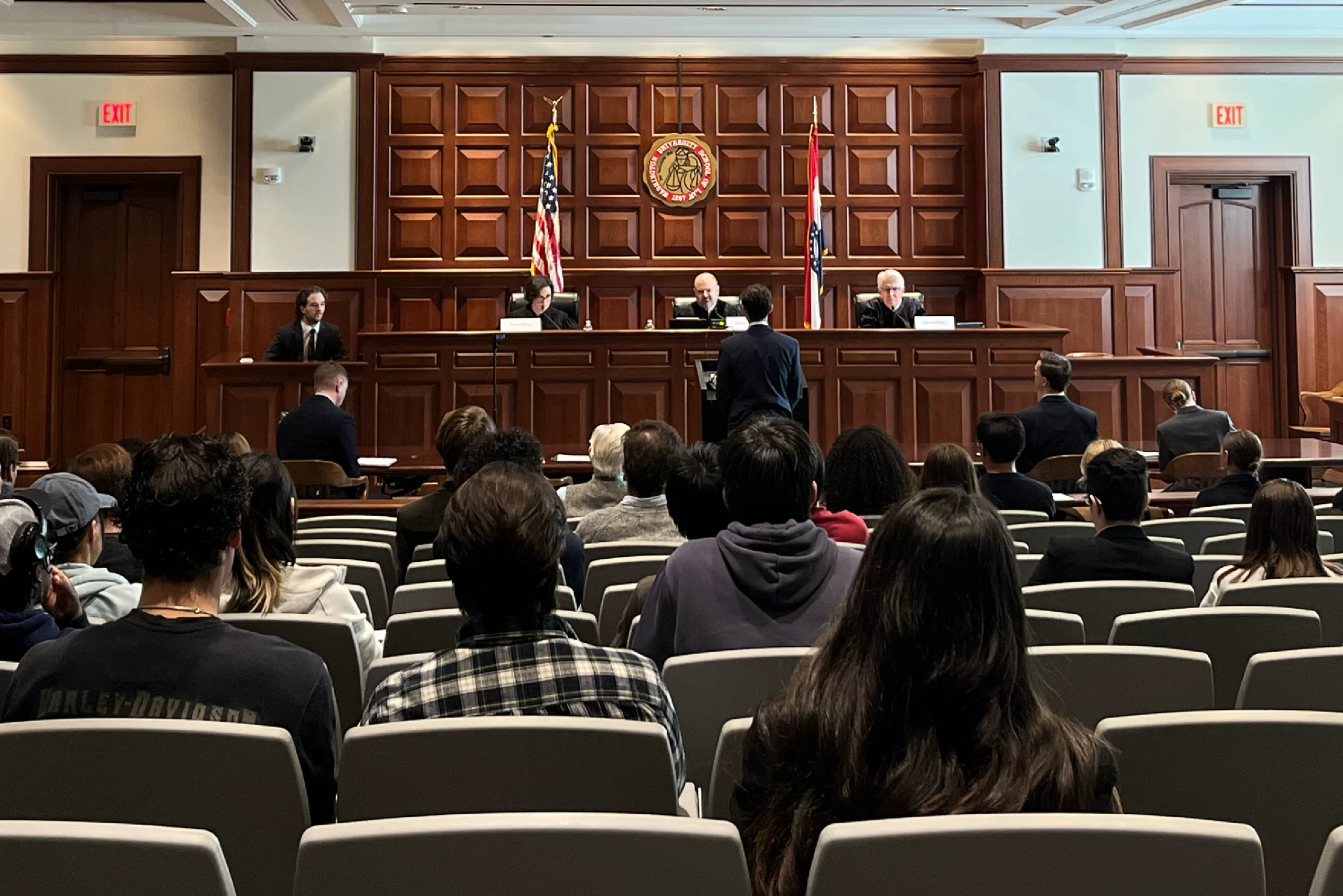
On September 11, 2024, WashU Law welcomed esteemed investigative journalist Michael Isikoff for an in-depth discussion on the myriad of legal issues stemming from the federal government’s response to 9/11.
Isikoff is a WashU alumnus and veteran reporter whose work has appeared in such publications as The New York Times, The Washington Post, and Newsweek. He has written extensively on the United States’ War on Terror, the Abu Ghraib torture and prisoner abuse, campaign finance and congressional ethics abuses, presidential politics, and other national issues. Most recently, he co-authored “Russian Roulette: The Inside Story of Putin’s War on America and the Election of Donald Trump” with David Corn.
The discussion was part of this year’s Public Interest Law & Policy Speakers Series (PILPSS) and moderated by Professor MJ Durkee. In his remarks, Isikoff candidly addressed the enduring legal consequences of various choices made by the U.S. government in the wake of 9/11, including torture, surveillance overreach, military commissions, and the invasion of Iraq. “National security, or at least perceptions of national security, drove a lot of these mistakes,” Isikoff said. “9/11 cast a long legal shadow on our country, where some of these questionable decisions were approved at the highest levels of the Justice Department and the White House.”
He also emphasized lawyers’ role in those errors, noting how lawyers provided legal justifications for the government’s more drastic measures.“There was an emotional demand, as Dick Cheney said, to get tough and go after the bad guys,” Isikoff said. “And there was a coterie of lawyers, political appointees, who were more than happy to give the policymakers the legal cover to do what they wanted. The heroes of this story are the few who refused to sign off on what they knew to be a violation of American law.”
Isikoff also reflected on the systemic issues that have emerged as a result of the post-9/11 choices. Issues such as the erosion of civil liberties and lack of accountability for the executive branch continue to shape the landscape of national security. He emphasized that while certain policies may have evolved, the underlying tensions between governmental power and individual rights persist.
Although national security concerns led to meaningful reforms, such as the creation of the Department of Homeland Security and the Transportation Security Administration, Isikoff noted that they came at a high cost to civil liberties. Looking to the future, Isikoff emphasized the importance of accountability across all branches of government, especially during times of crisis, in preventing further erosion of our legal system. In his view, accountability is important because “we may not make the same mistakes, but we’ll make different mistakes.”
This event not only provided a platform for Isikoff’s valuable insights, but also fostered an engaging dialogue on the role of law in protecting civil liberties and safeguarding democracy.



